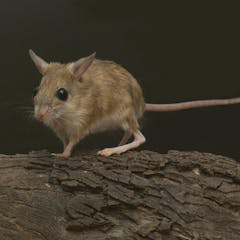
Articles on Conservation
Displaying 241 - 260 of 1238 articles

The US Supreme Court opens its 2022-2023 term with a case that could greatly reduce federal protection for wetlands. Here is what makes these ecosystems valuable.

New research traces the effect of drought on red kite chicks born during particularly dry years.

Money pouring into conservation has funded drones and military-style training for rangers.

A new study took a closer look at breeding pairs of these seabirds to find out why their bonds aren’t standing the test of time.

The pet trade threatens to decimate some species – and dull nature’s colour palette.

Sharks are much more severely threatened by humans than vice versa. A marine biologist explains how people can help protect sharks and why some strategies are more effective than others.

Australia has more than 60 species of native rodents found nowhere else in the world. New research used museum specimens to find out how they got here.

Monitoring bird population trends in Nigeria is a valuable activity – but it requires trained people and commitment over the long term.

The struggles of monarch butterflies reflect a shared North American ecological and social problem.

Indigenous-led conservation economies have immense reconciliatory potential and need to be respectfully supported and engaged in order to create a new shared and equitable economic system.

Gulls have a reputation for being the bad boys of the seaside.

Support for Inuit and other Indigenous-led strategies for conservation and community well-being must be prioritized.

Political interests have informed conservation policies in one of East Africa’s most important water towers, the Mau Forest Complex.

The paltry spending means many species severely impacted by the megafires were left in desperate trouble, potentially pushing some closer to extinction.

The true cost of marine conservation often falls on vulnerable coastal communities. Can a ‘beneficiary pays’ approach protect both endangered species and the communities dependent on them?

Butterflies are important pollinators. To find out how predators affect butterfly populations and diversity, butterfly decoys were used.

The Agricultural Internet of Things is making farming more efficient. An information technology expert describes some of the challenges of working with sensors and antennas underground.

Bans on importing hunting trophies risk harming, not helping, endangered species.

Pigeons simply don’t deserve the bad press they get.

A new map of more than 14,000 ant species around the world will guide efforts for discovery and conservation.
